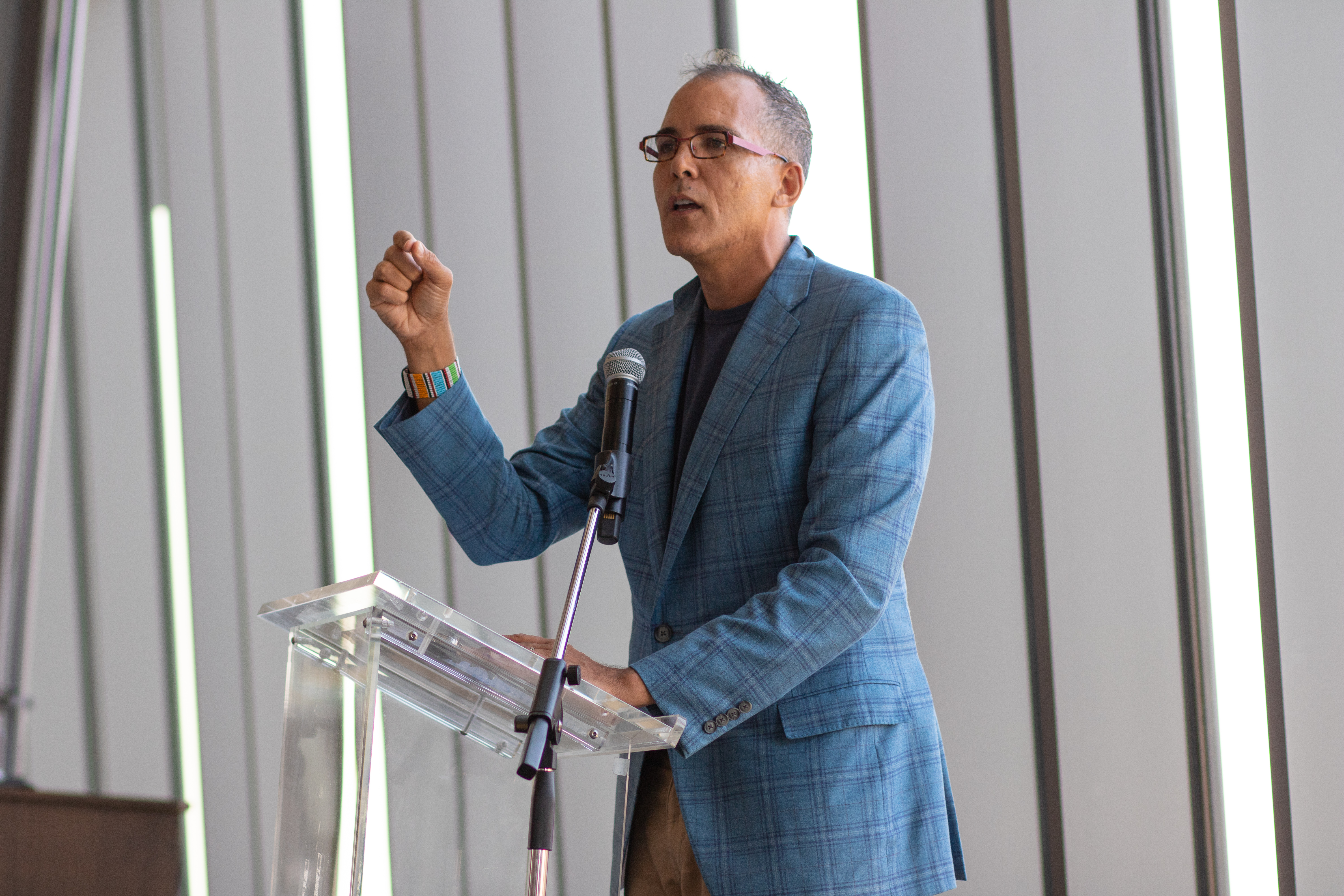By Destiny Torres
Staff Reporter
It may be surprising to some, but facts are facts: the U.S. has the highest population of prison inmates in the world; 67 percent of them are people of color, which represent only about 37 percent of the American population; and the massive number of incarcerated persons needing to be housed, fed, and clothed has led to a massive privatization of the jail and prison system, leading some to call it a prison-industrial complex.
The growth of that prison-industrial complex and the racial and socioeconomic inequalities that factor into it are some of the issues that James Forman Jr.discussed during a guest lecture Thursday, Oct. 10 at CSUDH. Part of the Social Justice Distinguished Series Series, hosted by the College of Business Administration & Public Policy, Forman’s presentation, “Confronting Mass Incarceration,” will be held on the fifth floor of the south library from 4 p.m. – 6 p.m. The event is free; however, seating is limited.
After the lecture, Forman will sign copies of his book, which will be available for sale (cash only).
CSUDH criminal justice professor Clarence Augustus Martin said this lecture can be a reality check for people who don’t realize the United States has more people incarcerated than any other country in the world.
“We want to stimulate critical thinking among our students just to make them aware of this reality,” Martin said.
In 2018, Forman won a Pulitzer Prize in general nonfiction for “Locking Up Our Own: Crime and Punishment in Black America.” His book digs deep into the roots of the criminal justice system’s ongoing war against people of color by incarcerating them, and the devastating consequences this has had, and is having, on communities of color.
One of the things he explores in the books is why African American leaders back in the 1970s supported the War on Drugs, a war that began a steep increase in people of color being incarcerated.
Forman is a law professor at the Yale School of Law. He studied at Brown University and Yale Law School. After school, he served as a clerk for a federal judge William Norris of the Ninth Circuit of Appeals and for justice Sandra Day O’Connor of the U.S. Supreme Court. He later went on to work as a public defender in Washington, D.C.
That experience of working within the criminal justice system gave him the ability to see how it works and how it doesn’t.
In his book, he also discusses how getting an education can keep people from getting into jail. Seeing the lack of educational opportunities for his clients, he co-founded the Maya Angelou Public Charter School along with David Domenici. This is a school for students who have dropped out or were previously incarcerated.

